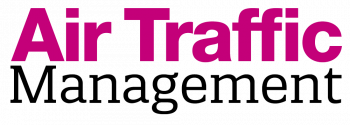ANRA Technologies and Hover UAV are excited to announce they are one of the recipients of the Australian Department of Infrastructure, Transport, Regional Development, Communications, and the Arts, $32.6 million Emerging Aviation Technology Partnerships program. This two-year program aims to encourage the deployment of emerging aviation technologies to enhance the competitiveness, efficiency, and reliability of Australian aviation. Hover UAV and ANRA Technologies have partnered to design and test a prototype software capability to enable the safe and efficient integration of drones into Australian airspace. The software, SORA-Mate, is an app that can be used on mobile devices or web browsers to satisfy Civil Aviation Safety Authority (CASA) requirements for complex drone operations by creating intelligent software for standardized, equitable, and repeatable Risk Assessments for Drone Operators and Authorities.
“We are thrilled to receive this grant and continue to contribute to the shared knowledge of RPAS technologies in Australia,” said Jackie Dujmovic, CEO of Hover UAV. She went on to say, “SORA-Mate is an enabler for BVLoS use cases that will expedite the approval process by streamlining and standardizing workflow while simultaneously reducing workload.”
Australian Specific Operational Risk Assessment (SORA) assessments are generated manually, with each submission assessed individually by the Australian CASA. The number of SORA assessments submitted to aviation authorities will increase as drone operators conduct more complex operations, in line with the growing need to fly Beyond Visual Line-of-Sight (BVLOS). To avoid delays and improve response times, the review of risk assessments needs to be prompt, uniformly applied, and scalable for different applications. As a starting point, presenting risk assessments in a standardised way allows CASA reviewers to make evidence-based decisions in a timely and repeatable manner.
“By making the process easier and known for both the aviation authority and drone operator, SORA-Mate will lower barriers to entry for BVLoS operations and increase productivity,” said Amit Ganjoo, Founder and CEO of ANRA Technologies. “We are thrilled to be partnered with Hover UAV to develop technology that we envision will help the Australian government and drone operators.”
SORA-Mate uses the CASA-mandated Joint Authorities for Rulemaking on Unmanned Systems (JARUS) approach to guide both the applicant and the competent authority in determining whether an operation can be conducted in a safe manner. The project will incorporate an iterative process in which the risk of complex drone operations is systematically identified. Using an intuitive graphical user interface, operators determine where, when, and how they perform the operation without endangering people and objects in the air or on the ground. At the end of this process, there is a detailed description of the planned operation, the risks associated with it, and the measures required to mitigate the risks.
SORA-Mate will connect the operator’s submission with the aviation authority for assessment, expediting the feedback loop. Drone operators will get approvals faster, CASA gains access to more data for analytics, and all stakeholders will have a common framework to assess risk and improve aviation safety. SORA-Mate’s simplified process will greatly benefit the drone community, facilitating fair and equitable access to airspace for all drone operations. The envisioned solution will provide aviation authorities with a tool to measure and assess risk using an internationally recognized methodology while simultaneously providing drone operators a known path for getting safely airborne.
“Safety in aviation relies on getting the basics right. SORA-Mate provides that platform for drone operators to achieve their safety objectives in a structured and understandable way,” said Nicola MacPhail, Emerging Aviation Lead at Hover UAV.
The SORA is critical to ensuring safe complex drone operations such as BVLoS. The process of developing these risk assessments can be cumbersome and overwhelming to some drone operators while increasing the workload on aviation authorities. SORA-Mate will help accelerate the early adoption of emerging aviation technologies by dramatically improving the decision timeline and instilling standardization. The project’s expectation is to create a nationwide framework, based on SORA approvals and information technology, enabling drone operator submissions for thorough aviation authority reviews at scale.
